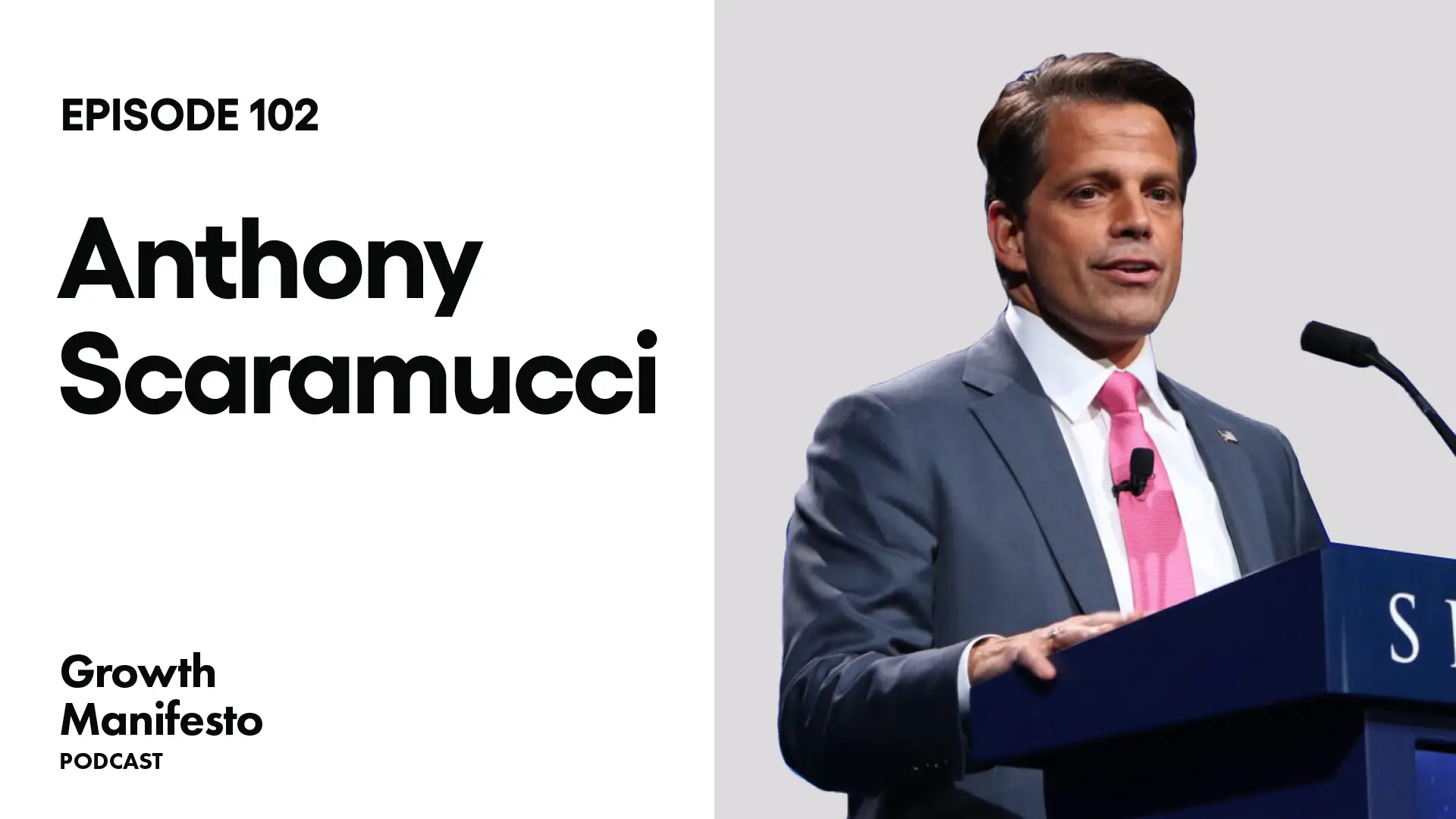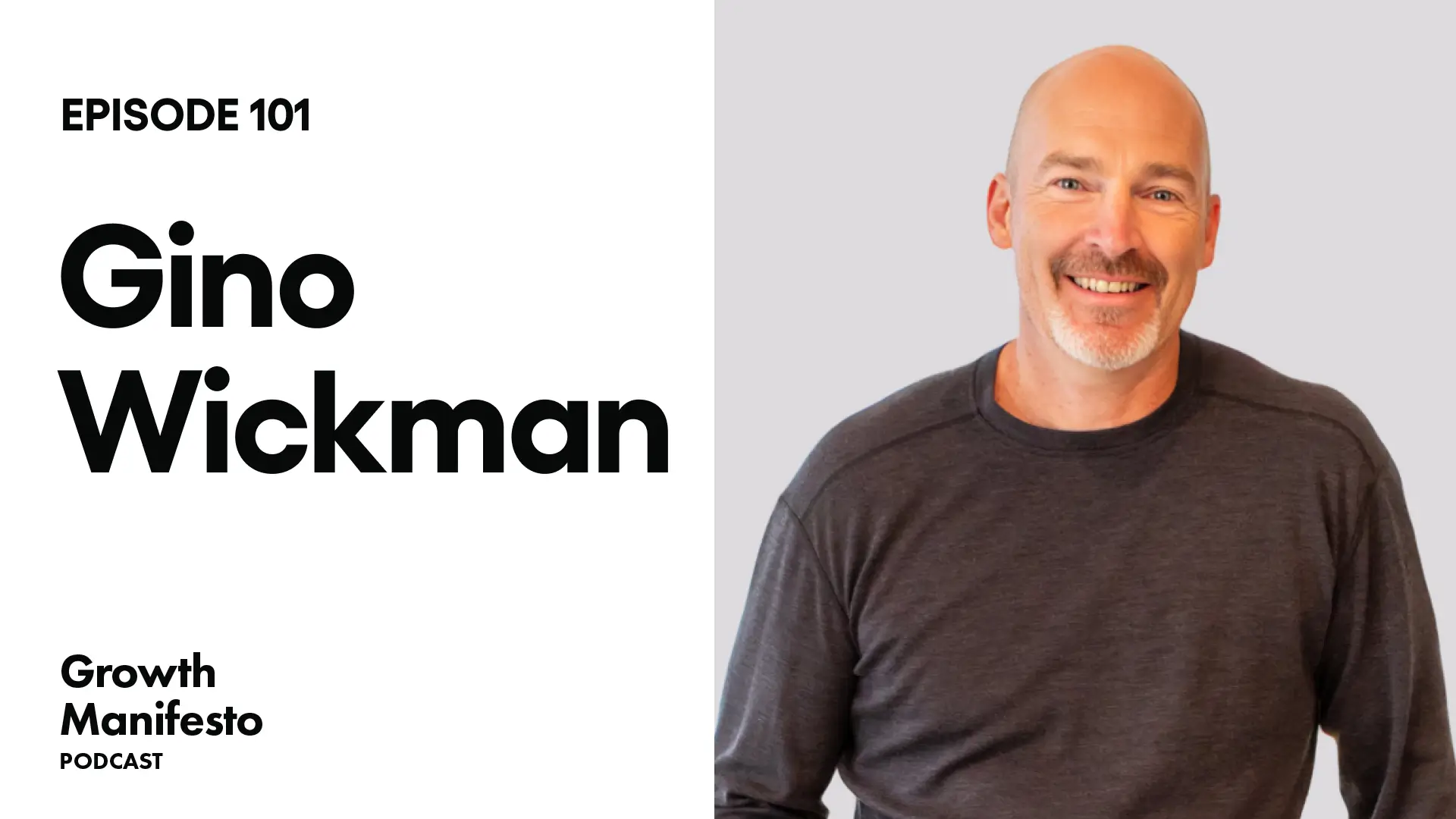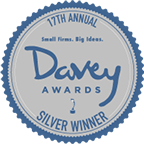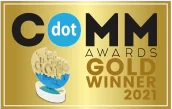Shipping Creative Work with Seth Godin
This episode is a discussion with Seth Godin, where we talk about his new book – The Practice: Shipping Creative Work, that talks about how anyone can find their voice and put their best work out into the world. In case you don’t know who he is, Seth Godin is the author of 19 books that have been bestsellers around the world and have been translated into more than 35 languages. He’s also the founder of the altMBA and The Akimbo Workshops, online seminars that have transformed the work of thousands of people. And in 2018, he was inducted into the Marketing Hall of Fame. So if you’re listening to this podcast you’ve very likely heard of Seth Godin.
LINKS
—
You’re listening to The Growth Manifesto Podcast, a Zoom video series brought to you by Webprofits – a digital growth consultancy that helps global and national businesses attract, acquire, and retain customers through digital marketing.
Hosted by Alex Cleanthous.
- YouTube: https://www.youtube.com/c/GrowthManifestoPodcast
- Instagram: https://www.instagram.com/webprofits/
- LinkedIn: https://www.linkedin.com/company/web-profits/
- Facebook: https://www.facebook.com/Webprofits/
- Twitter: https://twitter.com/webprofits
- Agency: https://www.webprofits.io
SHOW NOTES
- 00:01:02 Seth’s introduction to the Growth Manifesto Podcast.
- 00:01:26 How do you define creative work?
- 00:03:38 Creative work is about contribution.
- 00:05:45 How do you find your own creative voice? Seth believes you don’t create a voice. You adopt one.
- 00:08:25 Why Seth believes consistency is better than authenticity
- 00:10:40 If you don’t publish your creative work, it doesn’t count.
- 00:12:20 The work we are doing, if we are doing it generously, becomes a promise to our audience.
- 00:13:05 How do you overcome the fear and doubt of publishing your creative work?
- 00:16:57 How do you find out what you want to talk about in your creative work?
- 00:19:08 How do you write about topics you’re not an expert on? According to Seth you convene and connect with actual experts, go inch by inch, and commit to the process.
- 00:23:29 Generous action is the key to creative work.
- 00:24:15 A personal brand is a promise and an expectation.
- 00:25:15 How do you avoid ruining your personal brand?
- 00:26:27 People who say “I don’t have any ideas” actually mean “I’m afraid of my bad ideas”.
- 00:27:44 How long should you take to publish your creative work?
- 00:29:08 Why Seth feels like an impostor anytime he does good creative work.
- 00:31:35 “Talent is just a skill we didn’t realize we were practicing.”
- 00:32:48 People that publish creative work consistently will have good ideas pop into their mind because of the creative work they’re publishing.
- 00:33:20 How do you practice publishing creative work that requires constantly being different than everyone else?.
- 00:36:39 Good taste is knowing what your audience wants 3 minutes before they do.
- 00:38:11 How clearly defining your audience makes everything easier.
- 00:39:16 What would you advise someone who’s looking to start doing creative work?
- 00:41:46 Where you can purchase Seth’s book “Shipping Creative Work”.
TRANSCRIPT
Seth Godin:
So the path is really clear once you tell me what change you want to make. Maybe the change you want to make is you want to go from being an unknown comic to being a respected comic. Oh, really? Respected by who? Right? Respected by the people who want to laugh at off-color jokes and drink seven beers? Or respected by the people who read The New Yorker? Tell me who you’re trying to change. Let’s be really specific and put you on the hook. And people hate that, because people don’t want to be on the hook.
And I want to point out that being on the hook is the only place to be. Because when you’re on the hook, is when you have the leverage, is when you’re making a promise that you can work to keep. And so we gotta get really clear about who we are seeking to serve, who we are helping to change. And if you can’t start there, you’re going to get stuck, because the first time you show up, you’re not going to get a standing ovation and then you’re going to give up.
Alex Cleanthous:
All right. So today we’re talking with Seth Godin, and we’re talking about shipping creative work, which is also the subject of his latest book, The Practice: Shipping Creative Work. So welcome, Seth.
Seth Godin:
Well, thank you for having me, Alex. It’s good to see you. Sort of like looking at me, but it’s okay.
Alex Cleanthous:
Thank God the glasses are a different color. I think that makes it much better. Cool. So let’s just get straight into it. Let’s start with defining creative work. Seth, how do you define creative work?
Seth Godin:
If you’re really lucky, that’s what you do for a living. You don’t dig a ditch. You don’t follow a manual. You’re not a cog in the big industrial machine. If you do that kind of work of being a cog in the machine, you’re in trouble, because the computer is going to do your job or someone outsourced is going to do your job.
So our dream is to do creative work. But creative work is work, first and foremost, means we do it when we don’t feel like it. We do it with respect for the customer. We do it with a practise so that we can do it regularly. And very few people have ever talked about how you get good at that. They talk about how you build a bridge. They talk about how you do SEO. They talk about how you day trade Bitcoin. But they don’t talk about how to sign up to ship creative work. And creative work is anything we do, that might not work, that makes things better.
Alex Cleanthous:
Creative work is anything we do that might not work, that makes things better. That seems like that would be almost everything that is worth anything to do, right?
Seth Godin:
Well, except like if you’re-
Alex Cleanthous:
That’s the same — like it cuts across every industry.
Seth Godin:
… if you’re the clerk at the Avis Rent a Car counter, you know it’s going to work. There’s no risk. Press these seven buttons, do this. Right?
Alex Cleanthous:
Mm-hmm (affirmative).
Seth Godin:
And most people were indoctrinated to want that to be their job. They want their job to be being told what to do. There was a very famous study done in Rochester, New York, near here, in which they asked thousands of teenagers, 17-years-old, if you could have any one of these jobs, which job would you pick? U.S. senator, Supreme Court justice, head of a Fortune 500 company, assistant to a celebrity. And most people pick an assistant to a celebrity. Because if you’re the assistant to the celebrity, you get to be near someone who’s doing creative work, but you don’t have to do anything.
Alex Cleanthous:
So there’s a fear that people have around putting themselves out there. Is that right?
Seth Godin:
Yeah. Exactly.
Alex Cleanthous:
But there seems to be a general, I guess confusion around the kind of creative itself. It seems like it’s like the mad men style person that sits in an office and has an idea and they sell the idea or it’s the author that spent 20 years. And so there’s all these examples of the extreme levels of creative expression. And so there’s a lot of-
Seth Godin:
Most people aren’t actually that creative, but yes, I’m trying to puncture these myths. You’re exactly right.
Alex Cleanthous:
And they’re not that creative?
Seth Godin:
No.
Alex Cleanthous:
How do you mean?
Seth Godin:
Well, Isaac Asimov wrote 400 books in his lifetime. Each one was an act of creativity. Somebody who spent their whole life tortured to write one book contributed less. Because the torture wasn’t what we wanted. We wanted what the book would do for us, not that person hanging themselves out to dry. And so creative work with a capital C is about ego. Creative work that I’m talking about is about contribution.
Alex Cleanthous:
So it’s about contributing. And I think, just for the paper, listening to the podcast, the world that we live in today is best on the internet and it’s much, much easier these days to ship creative work, right? Because there is anything on the internet that is not creative work then?
Seth Godin:
Almost all the stuff on the internet is not creative work.
Alex Cleanthous:
Is it?
Seth Godin:
90% of Twitter is either someone trying to start an argument or saying ditto. That most of the stuff that passes for content marketing isn’t content marketing at all. It’s just somebody following a rule book, doing the checklist stuff, not making work they’re proud of, not doing anything that’s going to be extraordinary. Most of the videos that are on YouTube are copies of other videos that are on YouTube. The number of people who have carved out an idiosyncratic, peculiar, particular voice is tiny because it’s so scary.
Alex Cleanthous:
So let’s talk about that. How do you find your own voice? Because I do agree with you that a lot of content is a regurgitation of other content, right? And it feels like most people will have read online, and will have learnt online, and then information that they know is learned from someone else. And so then the first time they’re going to publish anything could be a version of that. So how can somebody actually start to find their own voice?
Seth Godin:
Okay. So there are a couple of pieces of that. First of all, I’m not talking about the content in the sense of the engineering truth of it, because there’s only so many natural laws; force, momentum, velocity. You’re not going to invent a new one of those. What I’m talking about is would we miss you if you were gone? Is there something distinct about your contribution that made a difference?
So if we look at the math of Wikipedia, what we see is that more than a hundred million people visit Wikipedia, very few of those people, three or four million, end up making an edit. And almost all of the edits are typos. Almost all of the edits are tiny trivial things. And they’re only 5,000 people who have earned edit privileges to be able to be a high enough level that they can start or substantially alter a significant Wikipedia article.
There’s nothing stopping anybody from reaching that level. And almost no one does. Because that is the level of original work. I made that sentence. That sentence is something I am proud of. It’s true. It’s based on a fact that’s evidence, but I was the person who shipped that work.
Alex Cleanthous:
Mm-hmm (affirmative).
Seth Godin:
The second half of your question was where do you find your voice? Controversially, I don’t believe anyone actually has a voice. I think you pick one. You adopt one. That if I had been born in Spain, I would not talk like this. It is not genetic to me. What happened was I said certain things at a certain age and it worked, so I did it more. And then I did it more. And so now I play a role. When I’m doing my work I am showing up as Seth Godin with a capital S and a capital G. Whether or not I feel like it, my work is to be a consistent version of me. And that is my voice. I found it. I didn’t expose it. I found it by choosing it, by seeing, here’s a place I can contribute by being this kind of person and talking in this kind of language.
Alex Cleanthous:
That’s an interesting one because you talk about consistency. And then you talk about in the book, consistency compared to authenticity. And there’s a massive amount of conversation these days about being authentic, but that isn’t exactly how you would explain it, is it?
Seth Godin:
No, I think authenticity is a crock. I think it’s a place to hide. Authenticity is what we say when we tried something that didn’t work and we’re upset, “Oh, I was just being authentic.” Right? How dare you criticise me for saying my truth… No. You didn’t say it for you. You said it for me and it didn’t work. Own it.
And when we go to a surgeon, or a lawyer, or any performer, we don’t want their authentic self. We don’t want the surgeon to come in and do a lousy job because she had a fight with her husband. We want her to be the best version. We want her to do the best surgery she’s ever done. We want consistent surgery, not authentic surgery.
Alex Cleanthous:
And that’s the same with creative work. This is the part that I think people are going to have a hard time trying to get their head around, is that consistency is more important than whatever their concept in terms of authenticity. Right? And so to be consistent, to turn up every day, and to do something every day is going to improve kind of how creative a person becomes. Is that correct?
Seth Godin:
Exactly. Because creativity is not about catching the muse who is some goddess from another planet. Creativity is the act of doing this work with skill to make things better for other people. If you want to have a hobby, none of these rules apply. I think hobbies are great. I encourage people to have hobbies. But the minute you want someone else to like your work or by your work, it’s not your hobby anymore. So I have hobbies, but I refuse to transact around them. Because that would ruin them and turn them into a profession.
Alex Cleanthous:
Yeah. I have hobbies as well that I just do just to do them. And I don’t care if someone else actually listens, but then I write and I care what people respond to. Then I care that that can instil some type of action. So does that mean then that people who are looking to be more creative should be okay with trying to put stuff out there and to hit the publish button? Yes. And not just to write, but to write something and publish. Is that what you mean by ship creative work and not just to be creative at home in front of a laptop?
Seth Godin:
If it doesn’t ship, it doesn’t count. Tomorrow morning, at 4:30, there’s going to be a post on my blog. Not because it’s the best post I ever wrote, but because it’s tomorrow morning. Because I decided 20 years ago to write a post every day. And I haven’t revisited that decision. I made that decision once. And 7,000 blog posts later, I don’t have to have a meeting with myself about whether this is good enough to publish. I just have to say, is this the best available post I’ve got? If it is, I will publish it. And it turns out the ones that I slave over the hardest that I am sure are perfect, don’t resonate. And the ones I write in five minutes, because I’ve had a busy day, go like crazy. I have no idea. I’m wrong all the time, but I ship the work.
Alex Cleanthous:
It’s interesting because I just posted something just on LinkedIn yesterday. I kind of submitted it, constructed it, and thought about it. It was shorter than I ever would, but it’s done better. And I don’t now understand why. And it pains me because I want to be better every day. And I’m like, why is this post better than the other? And I guess, to your point, it doesn’t make that much of a difference. You’d have to publish. You have to see. And you have to be consistent with that.
Seth Godin:
That’s right. And it doesn’t have to be every day, but my argument is that this work we are doing, if we’re doing it generously, not just to amuse ourselves, we make a promise to the audience. And we have to keep the promise. Part of that is being consistent. Part of that is being persistent when we are welcome. And so the difference between, say Bob Dylan, who continues to play for millions of people a year, and somebody from the sixties who’s gone is Bob keeps showing up. He brings the best version of Bob Dylan he can to the people who want Bob Dylan and almost no one goes, but the people who do go still account for millions of people.
Alex Cleanthous:
Yeah, sure. Yeah, right. It’s really interesting because this starts to bring up a lot of emotions in people, fear, doubt, but all the things are perfectionism. How do people start to overcome that? Because people have an expectation of who they are, and then when they hit the first time, anyone publishes them… The first time I did a podcast like this, because I have a stutter and all that, I was like, wow, this is not going to work. But I was like, look, I’m just going to stop to record.
The first one was hard and it wasn’t as good as the fifth one or the 10th one and so on. Right? But not everybody is prepared to put themselves out there and to fail. And so how can people start to warm themselves up to being able to publish? Because there is this massive fear of like, hey, I want to publish but I’m scared of being embarrassed.
Seth Godin:
Yeah. I want to do a small digression and then come back to that.
Alex Cleanthous:
Mm-hmm (affirmative).
Seth Godin:
It’s interesting that in an industrial economy where everything is about the things that are easy to measure, which we call hard skills, you have been indoctrinated like many people into believing that the fact that you have a stutter means you shouldn’t have a podcast because you aren’t hitting every single word at the rhythm you’re supposed to, but you’re not mentioning that you have more empathy and energy and excitement and optimism than almost anybody who has a podcast.
So the person who’s sitting there with perfect diction and who’s boring as dust thinks they’re entitled to have a podcast because they fit in. This is perfectionism. That’s not what the world needs more of. It needs these real skills, which some people call soft skills of humanity showing up. And if you show up with enough humanity, people don’t care whether you have hair or not, people don’t care whether you have a stutter or not, because you are connecting with other humans.
And so to answer the original question, we come to the smallest viable audience. So all of us grew up with mass media. And so we know who Oprah is, and we know who Aretha Franklin is, and we know who Ellen DeGeneres is, at least in the states, right? That success looks like 30, 40, 50 million people. But the internet is not a mass media. The internet is a micro medium. That nobody on the internet, nobody reaches 30 million people a day.
And so, instead of saying, how many likes did you get on Twitter? We can say, did a hundred people get touched by you in a way that they will soon forget. And if you can publish to a hundred people, what’s the worst that could happen? It’ll just bounce off. You’ll never hear from them again. That’s it. But there’s plenty of other groups of a hundred you’re never going to run out of. If you can serve the smallest viable audience and overwhelm them with what they need, they’ll tell the others. And then this micro medium kicks in and benefits you.
Alex Cleanthous:
Hmm. And it’s so interesting on that point as well, because on that point, I thought, well, because of the stutter, it’s not going to be as good, but then everyone was like, well, wow. Because of the stutter, this is really interesting. The fact that you have this, it seemed to have connected a lot more. And it was the opposite of what I thought, because there’s something that happens in somebody’s head where it’s not real, the fear that they have, they don’t understand how people are going to react. And so then they’re thinking that positioning is too high and then they’re getting stuck.
And so I like your point on, just start with a small audience, start with something small and publish. What does somebody start to write about? Okay, cool. Say, for example, someone says, this sounds great. I want to stop. What should I talk about? How do I talk every single day about something, say, for example?
Seth Godin:
So I would ask what’s the change you seek to make. So let’s say that you’re a periodontist and you would like to change the way the 9,000 periodontists in your country deal with infection, right? Let’s pick something super specific. You can’t just change it in five minutes. It’s going to take a persistent, drip-wise, creative narrative to help earn their attention, then earn their trust, and then get them to make a small experiment, and then another one, and then to build a community.
So the path is really clear once you tell me what change you want to make. Maybe the change you want to make is you want to go from being an unknown comic, to being a respected comic. Oh, really? Respected by who? Right? Respected by the people who want to laugh at off-color jokes and drink seven beers? Or respected by the people who read The New Yorker? Tell me who you’re trying to change.
Let’s be really specific and put you on the hook. And people hate that because people don’t want to be on the hook. And I want to point out that being on the hook is the only place to be. Because when you’re on the hook, is when you have leverage, is when you’re making a promise that you can work to keep. And so we gotta get really clear about who we are seeking to serve? Who are we helping to change? And if you can’t start there, you’re going to get stuck. Because the first time you show up, you’re not going to get a standing ovation. And then you’re going to give up.
Alex Cleanthous:
It’s a super point. I think this seems to apply quite a lot to leadership of sorts, right? So to put stuff out to achieve a goal. And so on the one side of it is the music side. And then on the other side is what everyone on this podcast is going to be doing, which is the thought leadership side, the content marketing side, the content side, we’ll call it. All right?
So from the content side of things, it seems that you need to have achieved some level of skill or some experience or something to be able to do that. But that’s only a perspective of the people that you’re trying to serve. Is that right or not? You know what I mean? Because if someone’s just starting out, they’re not going to be going out there saying, Hey, I’m going to change the game when they’re just starting out, but they want to ship. So what does that person do?
Seth Godin:
All right. So first, I need to put an important aside here with exclamation points on both sides. I have never met someone who woke up in the morning saying I wish someone would hustle me today. I wish someone would use social pressure and other tactics to hustle me into doing something I don’t want to do. I wish someone would use pop-ups and pop-unders and funnels and trick me and all that to get my attention. No, no one says that. So don’t do that. Nothing you’re working on justifies you doing that.
Alex Cleanthous:
Mm-hmm (affirmative).
Seth Godin:
Number two is, of course you don’t have an enormous amount of expertise in whatever you want to do. So maybe you begin by convening people who do, by making connections happen. That in itself is a creative act. So I don’t know if you know the legend of Esther Dyson or not. Esther is one of the most important people in the history of tech. I met her in 1983. In 1983, Esther Dyson had a newsletter. It was written on blue paper. It was mailed to its subscribers. And it was eight pages long, single-spaced typed. And it outlined people that she had met in tech who were launching interesting companies.
If you wanted the newsletter, it costs $3,000 a year. And she and her partner began, probably with 15 subscribers, but it was so valuable to the venture capitalists and others that the word spread, you needed to be a subscriber. And at its peak, I think it had 3000 subscribers. 3000 people paying $3,000 in 1983 to hear Esther Dyson every two weeks talk about who she had met.
So now the question is, is it worth going out of your way to meet Esther Dyson? It took a long time to get a meeting. If you got a meeting, you went to her building. There were two elevators. And she was on the fifth floor. And if you took the wrong elevator up to the fourth floor. So you had to send that elevator down into the basement. And then quickly get in the other elevator so you get to the fifth floor. It was a puzzle.
Then Esther started a conference. And the only people who were allowed to come to the conference were people who subscribed to the newsletter. And at the conference, she had her favorite people of the year present their companies. Now, if you were one of these entrepreneurs, is it worth it to present at the Release 2.0 conference? If you’re one of these investors, is it worth going to the…? Everyone wins.
What did Esther do? She convened. She created a connection where there was no connection. Within five years, she knew more about the future of tech than anybody, because she had spent her time as a convener hearing different points of view and reflecting it back to people in a way that was generous. She hustled no one. She ended up becoming an angel investor in probably hundreds of companies. She was on the board of Meetup before it sold and on and on. And I’ve known her off and on for years.
Is Esther a genius? Yes. Was she born a genius? No. Right? She comes from a family of geniuses. So she was expected to be a genius. If you’ve heard of the Dyson sphere, it was, I think her uncle physicist invented it. But the point is still, this is open now to everyone to say, there’s this genre I want to work in. There is this place where I want to put a stake in the ground that is generous. How will I then go to the next level and the next level and the next level? And any industry you can name that has a successful player in it, has a successful player, because they got there an inch at a time.
Starbucks didn’t start with 12,000 stores. It started with three. And they didn’t even sell coffee. They just sold beans. So the process is available. You got to commit to it.
Alex Cleanthous:
You have to commit to it and you have to take action. It seems like action is the key to all this. Is that right? And I think-
Seth Godin:
Generous action.
Alex Cleanthous:
Generous action?
Seth Godin:
You hope it’s in the puzzle. Generous action. Would we miss you if you were gone? If you didn’t build this, would we miss it? So if you are busy interrupting people… And I got to tell you, I am spam with every two-bit hustle you can imagine. People won’t miss those when they go away. And they do go away. The people who get out on the other side are the ones who are step-by-step generously shipping the work to a small group of people, in the right genre, causing connection and conversation to happen. And then it grows.
Alex Cleanthous:
So we’re really talking about kind of almost creating a personal brand, isn’t it? This is what this is about in a way. Is that right?
Seth Godin:
All right. So let’s talk about brands. Brand is not a logo. Hyatt Hotels have a logo, but they don’t have a brand. Nike has a logo, they have a brand. If Nike owned a hotel, you know exactly what it would be like. If Hyatt made sneakers, you have no idea. Right?
Alex Cleanthous:
Right.
Seth Godin:
So a personal brand is simply a promise, an expectation. When I get on a podcast with you or read something you wrote or give you any form of my time, I have an expectation for what I’m going to get from you. That’s your brand. And you can wreck your brand in one day if you want, but that’s your brand. Most people don’t have a brand. They just have a logo. Because I am not willing to give them enough of my time and attention for them to earn anything because they haven’t shown up in a way to have gotten my time and attention.
Alex Cleanthous:
People that listen to this, they may be thinking if I go out and publish, how do I not ruin the brand in a day? Just like what you just say like, ah, I don’t want to ruin my brand in a day. So how do I avoid that?
Seth Godin:
Yeah. So the promise has to be very specific. If you promise that you are the most reliable, consistent, and trained heart surgeon in all of Tucson and it’s not true, you’re doomed. If you promise that you’re going to show up for something interesting that may or may not work for people on some fringe of something, you can keep that promise
Alex Cleanthous:
Mm-hmm (affirmative).
Seth Godin:
Right? So think about, say the early days of Bitcoin. The people during the early days of Bitcoin who showed up and promised a stable, reliable, predictable replacement for cash, they’re all gone, right? That’s Mt. Gox. It’s gone because they couldn’t keep their promise. On the other hand, if you show up and say, “Hey, I’m Mike Novogratz, I’m swinging big bats here. And this is the most volatile, weirdest thing ever, maybe I’ll be able to double our money.” The people who invest in you are like, “Go for it, Mike.” Because they knew what the promise was.
Alex Cleanthous:
So they’re handicapped with the ideas, the ideas of… Because, like to write 7,000 posts, some days you must be sitting there thinking, what am I going to say today?
Seth Godin:
I make these on my-
Alex Cleanthous:
What’s your process?
Seth Godin:
I make these Glowforge. You can’t see these on the podcast. They’re going to be part of the launch of the book. And they’re called writer’s blocks. And I don’t know if I can —
Alex Cleanthous:
Yeah. There’s a video version of the podcast too, by the way. So they can see it.
Seth Godin:
This one is different, but this one says no such thing as writer’s block. Writer’s block is real, and there’s no such thing. What people who say I don’t have any ideas are actually saying is, I’m afraid of my bad ideas. Because everybody has bad ideas. And if I said, write down 99 bad ideas, I guarantee you at least three good ones will slip in. They will. So you don’t have an idea block, you’re just afraid of bad ideas. Write down more ideas, keep writing down ideas and sooner or later a good one’s going to show up.
Alex Cleanthous:
And then the psychological part of it is that you have to be okay in choosing the best of those 99 and just publish.
Seth Godin:
Yap.
Alex Cleanthous:
And just publish. And how long would you take to publish something? What’s the timeframe that somebody should have? Is it half an hour? Is it six hours? Is it two hours a day? What is the amount of practise somebody should be putting out there?
Seth Godin:
Well, I think different people have different postures. And I think it depends on what your idea looks like. If you are developing a pacemaker, I hope that you spend at least a year… Take your idea to the world. Paul Graham, the great entrepreneur, founder of Y Com. Paul, if you read his posts, at the bottom, he lists all the people he ran the post by before you read it. Because he wrote the post once a month.
I, on the other hand, have no one to look at my blog posts before they’re published. And every day I write three or four and you see the best one, right? The next best one that I’ve got. And the promise is really clear, which is, if you don’t like this, just wait until tomorrow, there’ll be another one. And that promise enabled me to not have to sit with a post for a long time. If it’s controversial, if I’m dealing with something where I’m over my head, I’ll work on it for a month, for sure, and other people will read it for sure. But my best blog posts are 20 minutes.
Alex Cleanthous:
So you do take time if it’s controversial because you don’t want to risk the promise, the brand, right. And to say the wrong thing and… Yeah. And I think if people are at that… Because this comes to the imposter syndrome, which everyone has, at all levels< it gets easier the more that you write, right? But it feels like could you-
Seth Godin:
It only gets easier if you get lazy, because… Well, first, everyone’s entitled to a microphone, but no one’s entitled to an audience and not entitled to applause. So just because there is a process doesn’t mean it’s going to work. It just means it’s going to work better than if there isn’t a process. So with that said, the thing about being an imposter is I feel like an imposter any day I’m doing good work. And if I don’t feel that way, then I might be busy, but I’m not working very hard.
Alex Cleanthous:
So you feel like an imposter anytime that you are doing great work? Is that what you said?
Seth Godin:
Yeah.
Alex Cleanthous:
And why is that?
Seth Godin:
Because I’m doing something that might not work. That’s what it means to be creative. What it means to be creative is you’re shipping generous work that might not work. Well, the stakes are much higher for me than they are for someone with 50 followers. So given how high the stakes are and I’m working on something that might not work, of course I feel like an imposter, because I’ve never done that before.
Alex Cleanthous:
So you keep pushing yourself? And that’s the creative part of it, isn’t it? That’s where that creative muscle almost starts to play. It’s when you get into the zone almost, right? The flow state. And then all of a sudden, stuff starts to come out from somewhere.
Seth Godin:
This is where-
Alex Cleanthous:
Where is that place? What’s that place called where things –?
Seth Godin:
One reason that rockstars burnout is they end up playing covers of themselves, that the audience doesn’t want to hear the new album. The audience wants to hear their greatest hits. And so the rolling stones stop being the rolling stones and they start being the rolling stones cover band. And that’s enervating, because they thought that’s what they signed up for. And so the dance is to figure out how do I make a promise to people that I’m going to live on a frontier. And it might be interesting. And it might not work. And I’ll always do it with good intent, but your mileage may vary. And you may not get the joke. And that’s totally okay.
Alex Cleanthous:
But where did the creative ideas come from? Because, like at the beginning of this, you spoke about the muse, the muse that will come up with that idea. And I have found that sometimes I might be on the beach or I might be out somewhere, something will pop into my mind that will change everything. Right? And we’re not talking about that right now, are we? That’s something different, isn’t it? Or is it similar? I don’t know.
Seth Godin:
So the great Cory Doctorow, a science fiction author, taught me last week, talent is just a skill we didn’t realise we were practising .
Alex Cleanthous:
Oh, that’s cool.
Seth Godin:
So what happened when that idea popped into your head is it was one of a parade of a thousand ideas, but one of your filters highlighted it for you. And you didn’t hear the other ones, but they were there. Good ideas or simply the iterative process of effort. And you might not be noticing the bad ideas, but they are definitely there.
Alex Cleanthous:
I can confirm that, by the way. It’s hard to get the good ideas, though. And I think, to that point, it does… So just to confirm, people that ship creative work consistently will have the good ideas pop into their mind because of the work that they’re shipping and that changes their psychology because the more they do it, the more experience they have and the greater their context.
Seth Godin:
Correct. Absolutely correct. That flow comes from the work, the work doesn’t come from flow.
Alex Cleanthous:
So what about the mad-man style, creative ideas, right? Say, for example, if that was your job, right? And you needed to come up with ideas that were not the same as everyone else, and that was your job, right? And it was like a logo design or it was some story which you had to create, or it was like an ad, let’s say, because this is like a marketing podcast as well, how would you practise that kind of work or shipping that kind of work?
Seth Godin:
Well, the first thing is we need good taste. And to get good tastes, we need to understand a genre. And it means we have to have done the reading. You can’t work on a logo without knowing who Paul Rand was, right? You can’t work on the logo without having seen a thousand logos. Otherwise, you’re just an amateur, right?
Once you understand the genre, then you can say, well, I see the terrain. And there’s terrain over here that is largely unexplored, but because I understand the genre, drawing out what’s on that terrain is really easy, right? It’s really easy for someone who invents TV shows for a living to come up with MTV cops. And if you come up with MTV cops, you have Miami Vice and suddenly you’re a genius.
Alex Cleanthous:
Mm-hmm (affirmative).
Seth Godin:
But it wasn’t very hard. The hardest part was that other people had come up with Miami Vice before, but had discarded it, because it felt too risky, because it felt too far afield from the junk that network TV had brought. So he had the wherewithal to consistently persistently get that show made without compromising it into just a version of Mannix. Right?
And so the original idea of Miami Vice took less than a minute to think up and less than half an hour to draw out. The hard work was not compromising after that. In all respects, what should be on the soundtrack? And what should be the color scheme? And why is it like this? And who is it for? And what do I say to the critic who doesn’t get the joke? Right? But those things are all executions on an insight that comes from a deep understanding of genre.
Now it is possible to just get lucky and show up with your thing out of the blue. But those people tend to be one-hit wonders, because they don’t have the discipline to keep doing that work with passion. And so the problem I have, other than the moral problem, with people who hustle is they’re building their whole thing on the slimmest of ideas with almost no execution behind it. They lose interest after a few weeks, and that’s not how you build something great.
If we think about it, and I don’t think Facebook is something great, but if your goal is to create a change in the culture or create a lot of money Facebook ad, Facebook had one idea for 100 people at Harvard, right? Obviously, there’s two ideas. Idea number one, you don’t have a date idea. Number two, people are talking about you behind your back. You want to hear what they’re saying? That’s it. That’s all Facebook is. And then 15 years of hard work.
Alex Cleanthous:
And does a few other things. But yeah, I get what you’re saying. So you just talked about the risk of something, say, for example, the Miami Vice, but that was a risk, right? And it seems to be that some of the best stuff feels inside of view a bit risky. So is risk a good sign that maybe this is the right path? And how do you know when it’s too far? It’s too risky?
Seth Godin:
So this is good taste. Good taste is knowing what your audience wants three minutes before they do. And if you do it 30 years before they do, then you will be ostracised because you went are too far. If you do it three minutes after they do, no one cares. So the act of good taste, whether or not you use words to describe it to yourself, is knowing enough about the genre and your audience to be just far enough ahead.
And all you have to do is watch the cresting wave of YouTube or the cresting wave of the podcasting world to see the pace of what it means to be just a little bit ahead. And there are people who have gone too far and they… So someone like Brian Eno. Brian is respected and revered by a very small group of people. And it’s a small group of people because he was too far ahead to get the masses to get his joke. But if you wanted to, you’re going to make a living just taking a Brian Eno idea and bringing it out a year later.
Alex Cleanthous:
You talked about the audience as well. So is it clearly defining the audience? Is that a really key part of this process? Is it clearly defining who you’re talking to? Is that going to make it easier for people?
Seth Godin:
Yeah. Change is everything. And I think you can start by saying my audience is anyone who gets a joke. The problem with that is you have to then try a whole bunch of people before you figure out who your audience is. It makes way more sense. My friend Chip Conley built an entire chain of hotels in which every hotel was modelled after a magazine. Because he figured if there’s a million people who are reading House & Garden or a million people reading Fast Company or a million… Those kinds of people need a hotel. So let’s rhyme with that. He picked his audience and then he built something for them.
And certainly that’s what Condé Nast did for 50 years. Right? The kind of person who reads Gourmet is not the kind of person that reads Architectural Digest. Pick your audience first. You don’t have to be super specific, but it certainly helps if you can be clear about who that tribe is and what they need from you.
Alex Cleanthous:
Yeah. Okay. Okay. So, to the people that are listening that are starting to think, “Okay, cool. I want to start something now. I’m inspired by Seth. I get it. I’m scared, but I’m going to do it anyway because I have to be consistent.” What would you advise them? What’s the first thing they should do?
Seth Godin:
Well, I guess, if we’re talking about someone who is actually as novice as you were describing, I would pick an audience you don’t want to serve for the long haul and practise on them, right? So let’s say you live near a figure-skating rink, which means that there’s a hundred people who go figure-skating every day. What do they need? What innovation would make their life better? What might they buy from you? Go practise on them. And if you fall on your face, you never have to go back to the figure skating rink again. It’s invisible.
Alex Cleanthous:
Mm-hmm (affirmative)-
Seth Godin:
Practise over there, practise over there, practises over…. So I started in the book packaging business because the beauty of it is you’ve got two stamps. You could send a letter to anybody in the book industry. And if they liked your idea, they would mail you money. And that, I got 800 rejections in a row. I was a complete failure, but no one knew that I was getting 800 rejections because each person only rejected me 20 times.
And eventually I figured it out. I got the joke. And so I could play in that space. And then when the web came along, it’s a totally different group of people. But I knew how to pitch ideas to people. So I could go pitch AOL. And I crushed it at AOL, because that was better. AOL does a greenhouse thing where you could pitch them an idea and they would meet. I broke the record for the fastest… Yes, 14 minutes after I pitched them, they agreed to give me six figures for my project. How did that happen? Because I’ve been pitching the book industry for 15 years, right? So you pick your minor leagues, then go to your next leagues. That’s how I would begin.
Alex Cleanthous:
And that’s the same for anybody that hasn’t shipped creative work before, right? Because there are people out there that are extremely experienced in their field but have never shipped something creatively. And so now their ego is going to be their biggest challenge, right? Is that they’re scared that now they’ve got all this status, and then they’re going to publish something and this status is going to be reduced.
Seth Godin:
Exactly.
Alex Cleanthous:
So it’s really good idea-
Seth Godin:
Don’t start there. Right? If you’re a stamp collector and a surgeon, don’t publish in a surgical journal, publish in the stamp collector journal.
Alex Cleanthous:
Got it. Got it. Seth, this has been a fantastic conversation. This book, The Practise: Shipping Creative Work, how can people purchase it? Where can they purchase it from?
Seth Godin:
It’s out now. It’s available wherever finer or unfiner books are sold. And there’s an audio book too, but I don’t need people to buy a book to make a difference. I wrote a book so that you would get a few and share them with people and form a support group. But I have a blog… It’s free. There’s 7,000 posts on it. And I run workshops at akimbo.com. So plenty of ways to level up. But my agenda is not cutting down trees. My agenda is helping people get what they want to get.
Alex Cleanthous:
That’s awesome. And the book as well is so interestingly written that every chapter is really short and punchy. And so it’s really easy to read anywhere, because it just takes you a couple of minutes and that’s one more chapter. It’s extremely well written. So I highly recommend it as well. I thank you so much, Seth. This has been such a fabulous conversation. Have a great afternoon, I guess, there.
Seth Godin:
Yeah. Nice work. Cheers. You’re amazing. It’s been a pleasure.
Alex Cleanthous:
Thank you.
Speaker 3:
Thanks for listening to The Growth Manifesto Podcast. If you enjoyed the episode, please give us a five-star rating on iTunes. For more episodes, please visit growthmanifesto.com/podcast. And if you need help driving growth for your company, please get in touch with us at webprofits.io.
Now that you’re here…
Why not take a few minutes to see how Webprofits can help you achieve your growth aspirations?
We helped one company grow from $25M to $190M revenue in 4 years, and we work with challenger brands that want to make a serious impact in their industry and have the resources (and the will) to make it happen.
If you want a growth strategy that leads the way in your industry, find out how Webprofits can help you transform your digital marketing.
See what we can do











